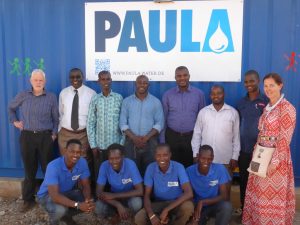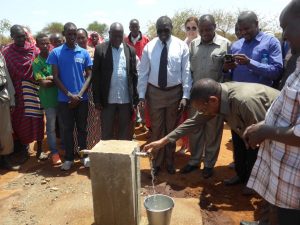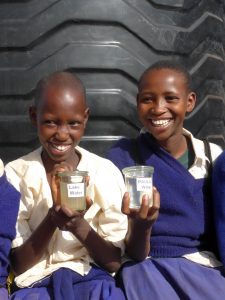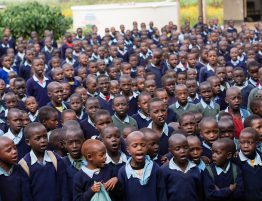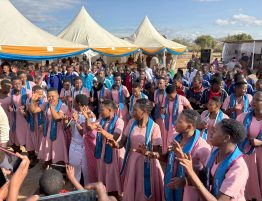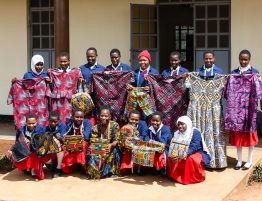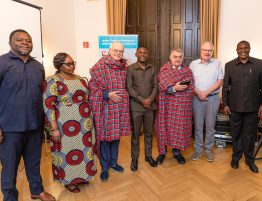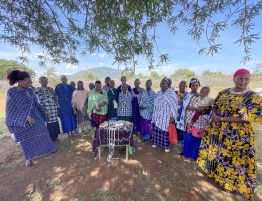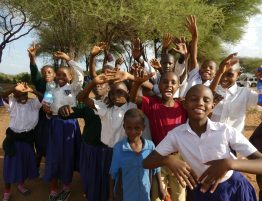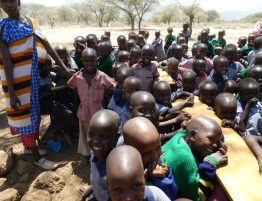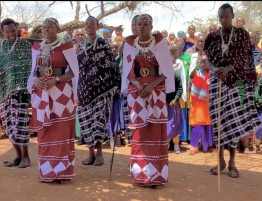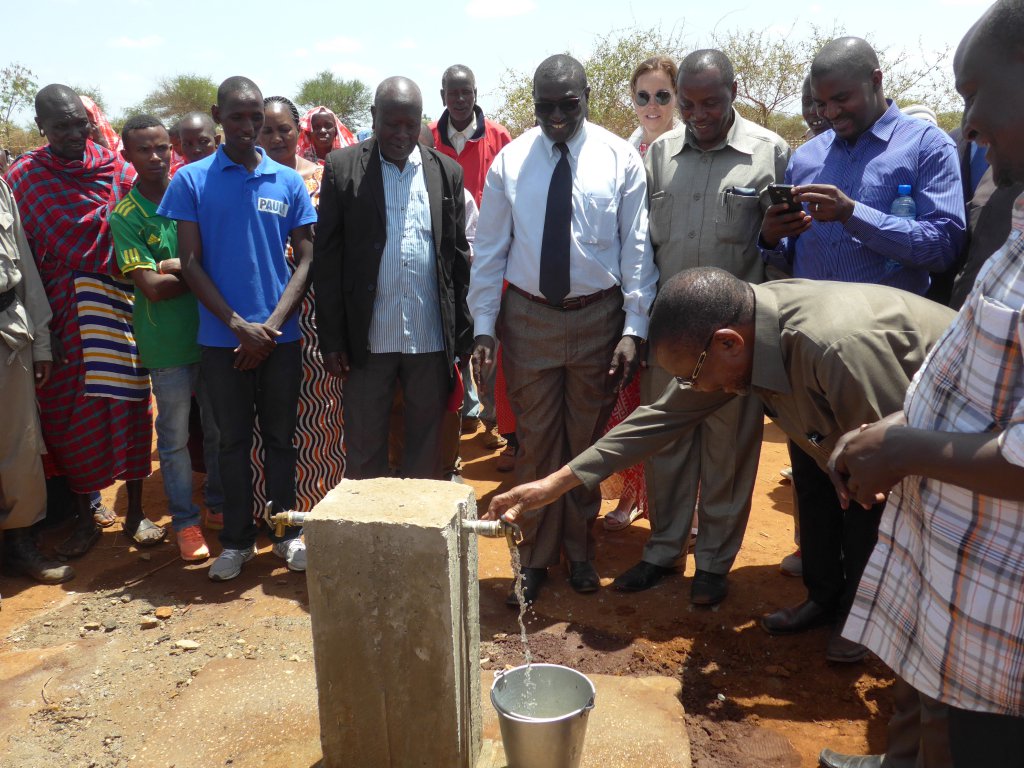
In this information letter, we report on the opening of the water project in the village of Sukuro at the beginning of the year and the latest developments at the secondary school in Emboreet, our most complex project. We will report on the other projects of upendo in the coming information letters: on the work with the women’s groups, the renovation and expansion work at various primary schools and also on our projects in the conflict between man and nature.
Opening of the PAULA Water Project
The village of Sukuro is about half an hour’s drive away on unpaved pistes from Emboreet. Beside the village a dam was built in the colonial time and in which the draining water is collected during the rainy season. In the nearly eight months of the dry season, thousands of cattle, sheep and goats come to the lake daily to quench their thirst in the water. The water is so polluted – also by the cattle`s urine and feces – that you cannot see a three centimeters deep into the water. But still the village inhabitants get their drinking and service water there – and also many diseases, as the statistics show in the local health center. Fortunately, the lake is so large that only in extreme years its water supply is not sufficient for the long drying time.
We are pleased that upendo was able to install a water filtration system last year with a PAULA container by means of a special donation in Sukuro. It took a few months for the container and the complete equipment belonging to it to arrive from Germany in Tanzania and subsequently to be released by the customs. But after a crane had lifted the container in Sukuro from the low – loader to the prepared foundations, the installation could take place in December still before the start of the rainy season.
In the middle of the lake a pump is hanging on a pontoon which pumps the sea water into the container through a long pipeline. There, it is distributed in three tanks, in which special membranes are installed. Small pumps in the container suck the clear water filtered through the membranes into a fourth tank, from which it is pumped into the storage tanks outside the container. Solar cells on the container roof supply the system with energy and thanks to the batteries in the container the plant works day and night. 24 cubic metres clear and hygienically clean water in drinking water quality are now available to the villagers on a daily basis.
In this area almost exclusively groundwater fountains are drilled for the water supply of the population, since the surface water is generally polluted – with the corresponding health consequences. However, a facility that filters surface water and makes the population more independent of groundwater generates great interest. The minister responsible for water was on the ground just a few days after the installation of the PAULA container, in addition to representatives of the local government and the parliamentary committee in charge.
At the official opening ceremony on February 9, 2017, Joel Bendera, the regional commissioner of the Manyara region, was once again our guest of honour. On behalf of the ministry he opened the facility with a bucket of fresh water in the presence of many guests, among others Mrs. Rebecca Trienekens of PAULA Water GmbH in Germany.
The village has established a water committee which is now responsible for the undisturbed operation of the facility. A few cents are charged for every bucket of water in order to pay the incurred costs and wages. As for the local school the village management has however decided that it gets the water for free.
Secondary School in Emboreet
At the end of 2016, the country-wide final examinations were held at the secondary schools of Tanzania. Although only 54% of the pupils at the secondary school in Emboreet passed the “O-level”, the figure is twice as high as the previous year (28%). Even though these results remain unsatisfactory, they show improvements from year to year. These students had to learn under extremely unfavorable conditions over the past few years. Before the construction of the dormitories the boys had to walk long distances every day to get to the school. Until the construction of the first houses for teachers, all teachers lived far away from the school in the surrounding villages. At the end of the school year, no teacher was present on the school grounds to supervise and tutor the students. The next generation of students is already doing much better in this respect: during the nationwide intermediate examinations which take place after the first two school years, our students performed well at the end of the last year: All of them passed the examinations and qualified for two more years leading to the O-levels.
In addition, there are other positive developments to report: At the beginning of this year, 100 girls and boys started their first-year education at the Secondary School – a figure which is already at the limits of what is possible for a school with two parallel classes even in Tanzania.
Since all children come from the district, this figure also shows the increasing success of the primary schools: for us this entails an obligation to look after the primary schools as well, so that the increasing number of pupils there does not lead to poorer education.
During our visit in February 230 pupils were taught at the secondary school (including the 100 beginners). The headmaster expected the number to rise again by about 50 in the coming weeks due to new allocations. And in July the first and only secondary school classes in the district will start at the school. Then there will be 70 more pupils (two classes with 35 pupils each), many of whom will hopefully qualify for university entrance with the A-levels.
Education in the Simanjiro district is making significant progress. We are delighted to be able to help with upendo. This year renovation work is being carried out at three primary schools in the district and one in another district. The construction work at the secondary school in Emboreet for a building complex with three natural sciences laboratories has almost been completed. In the second half of the year we plan to build six rows of houses for teachers and their families. Then almost all the teachers will be on the school site day and night, and will be able to focus on teaching and supervising the students.
Photos:
Fred Heimbach (May 2017)
Translation German – English: Marita Sand

